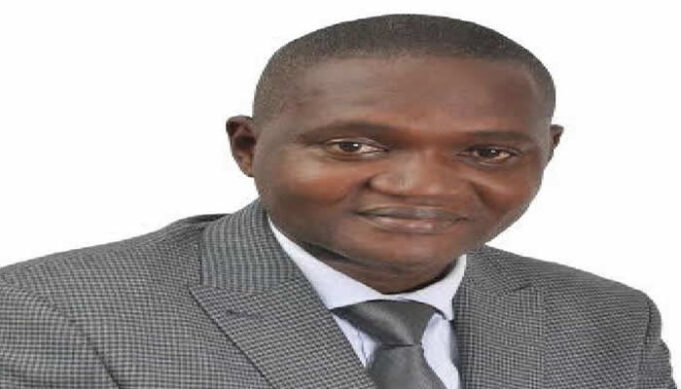Psychiatrists have cautioned that a toxic marriage filled with frequent conflicts due to marrying the wrong person can have a severe impact on mental health, potentially leading to depression, anxiety, and suicidal thoughts.
Speaking exclusively with PUNCH Healthwise, mental health professionals stressed the importance of selecting a compatible partner, as failing to do so could result in persistent stress, regret, and emotional distress.
The increasing number of tragic incidents linked to marital problems has raised concerns among experts.
Recently, two separate cases involving Nigerian nationals in the United States have underscored the devastating effects of marital conflict.
In one instance, a 64-year-old Nigerian professor at Kutztown University in Pennsylvania, Chukwudubem Okafor, fatally shot his Jamaican wife, Cheryl, before taking his own life in what investigators have classified as a murder-suicide.
Detective Joel Vonnille of the Berks County Coroner’s Office revealed that ongoing marital disputes contributed to the tragic event.
Similarly, a 36-year-old Nigerian cardiologist in the U.S., Dr. Ikenna Erinne, reportedly committed suicide after losing a child support case to his ex-wife.
His prolonged legal battle and a court order mandating him to pay $15,000 in monthly child support had reportedly taken a heavy emotional toll.
These cases highlight the growing concern over how marital issues can escalate into serious mental health crises, including suicide.
Mental health experts have stressed that choosing the wrong partner can have long-term consequences on one’s psychological well-being.
Dr. Sunday Amosu, Head of Drug Addiction Treatment Education Research at the Federal Neuropsychiatric Hospital in Aro, Abeokuta, Ogun State, emphasized the importance of parental guidance in marriage decisions.
“Ignoring parental advice and proceeding with a marriage that was not approved could lead to a range of problems, including depression, anxiety, and suicidal tendencies,” Amosu warned.
He noted that individuals who enter marriage without proper guidance often experience feelings of isolation, loneliness, and depression, especially when the relationship turns toxic and they feel unable to seek help.
Amosu also stressed the need for pre-marital counseling, stating that many people suffer because they do not seek professional guidance before getting married.
He advised individuals to consult professional counselors, mentors, or accountability partners who can provide emotional and psychological support.
He further emphasized, “So, people should not die in suffering. When there is violence, don’t keep quiet. Don’t die in silence. Cry out. If you cry out, the solution may be on the way. Somebody may come to your rescue.”
The psychiatrist explained that in some cases, temporary separation might be necessary to prevent fatal outcomes in toxic marriages.
“We know that sometimes the couple may need to separate for some time and later come together again rather than being killed like a chicken. I think people should not die in silence. They should come out.”
Amosu further warned against rushing into marriage under deceit or pressure.
“If you go into marriage under deceit, and this person gets that discomfort, he or she may leave you. And the fear you had at the beginning of not losing, ultimately will still happen. Then is it worth the trouble? We must be sincere in marriage,” he said.
Discussing how marriage can contribute to mental health breakdowns, Amosu added, “It has also been found that marital discord usually precedes depression in those who are married.”
He pointed out that trust issues often arise when partners hide their struggles from each other, leading to emotional detachment and, in some cases, marital collapse.
“When there is a lack of trust, the person will not trust again; it will be a serious one. And sometimes the marriage may break down.”
According to him, major life challenges such as the death of a loved one, kidnapping, armed robbery, or even witnessing a spouse being harmed can lead to deep psychological trauma that affects the marriage.
“These are major life traumas. Even with the stresses that we go through, and the challenge of our children; maybe they are not doing well in school as expected. So, all those things will tend to people developing depression.”
He further noted that physical illnesses, such as chronic diseases requiring long-term medication, could also contribute to depression in marriage.
Amosu urged young people to exercise patience in relationships, while also advising parents to provide unbiased guidance to their children when it comes to marriage decisions.
“What we need is to support them, remove sentiment, and be sure that they’ll be able to live together. And all the necessary support that they need in marriage, we must be able to give them,” he said.
He warned that rushing into a marriage against parental advice could lead to a lifetime of regret.
“If parents are saying no, please be careful. If you bring somebody and they don’t approve, you need to be very careful. People must be careful. We must make an informed decision and be sure that we are making the right decision. If not, sometimes people will have to live with regret for the rest of their lives.”
Dr. Oyebode Fadipe, a psychiatrist at the Federal Neuro-Psychiatric Hospital, Yaba, Lagos State, also underscored the importance of compatibility in marriage.
“Marrying someone who is not compatible with you can lead to a lot of conflict and stress,” Fadipe stated.
He explained that being in a relationship with a partner who does not understand or support one’s goals can result in feelings of loneliness and frustration.
“When individuals are in a relationship with someone who does not share their values or goals, it could lead to feelings of frustration and resentment,” he added.
Fadipe also warned that being in a controlling or manipulative relationship could lead to a loss of personal identity.
“When you’re in a relationship with someone who is controlling or manipulative, you can start to lose sense of who you are and what you want,” he said.
The psychiatrist emphasized the need for individuals to take their time in getting to know their partner before making a lifelong commitment.
“Rushing into a marriage without properly getting to know the person can lead to disastrous consequences,” he cautioned.
He stressed that effective communication is key to building a strong and healthy marriage, adding, “Being able to communicate effectively with your partner is crucial for building a strong and healthy relationship.”
Finally, he urged individuals to always prioritize their mental health when choosing a spouse.
“You should never feel like you are sacrificing your happiness or well-being for the sake of a relationship,” Fadipe concluded.

















